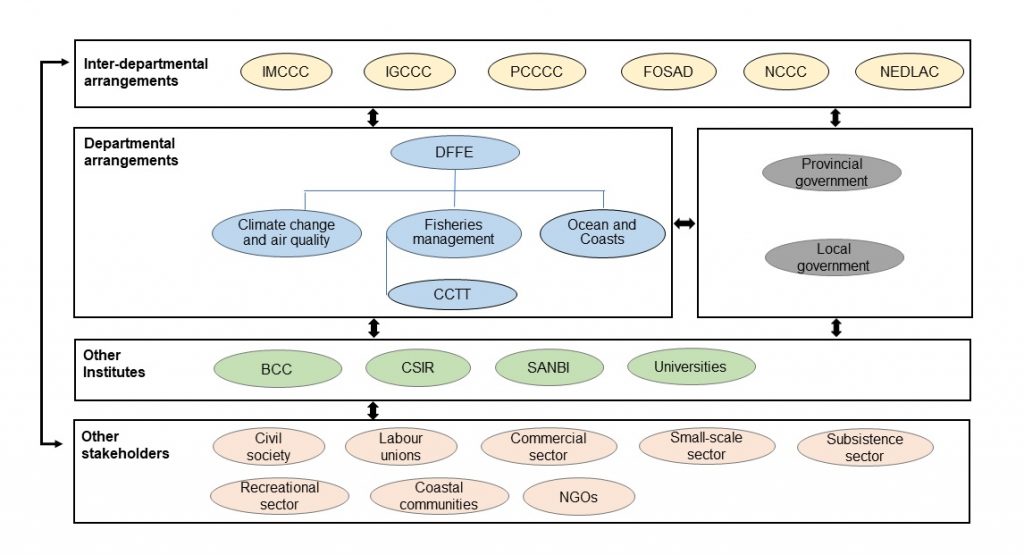Figure above: Schematic representation of the institutional arrangements for climate change and fisheries in South Africa. The figure shows a clear delineation between stakeholders, however in reality, there is an overlap between different institutions, mandates and roles which the figure does not show.
Authors: Kelly Ortega-Cisneros, Kevern L. Cochrane, Nina Rivers, and Warwick H.H. Sauer
The marine fisheries sector is one of the most important income sectors in South Africa and plays an important role in food security for small-scale and subsistence fishers. Climate-driven impacts have resulted in distribution shifts and declines in abundance of important fisheries targets, with negative consequences to the users dependent on these resources. The sustainability of the sector depends on its readiness to adapt to climate change. The inclusion of climate change impacts and adaptation in fisheries management documents in South Africa is essential to ensure adequate climate adaptation responses are implemented at the short- and long-term. This study evaluates the extent to which fisheries management documents address climate change and adaptation. Results indicate that climate change impacts and adaptation are rarely incorporated in the main fisheries management documents, except for the Climate Change Adaptation and Mitigation Plan for the agriculture, fisheries, and forestry sectors. However, this document is still waiting to be adopted. The only direct reference identified in all the fisheries documents that supports climate change adaptation was ‘conservation and sustainable management of biodiversity’. With regards to indirect references to climate change adaptation, ‘equity’, ‘participatory management’, and ‘capacity building’ were most frequently incorporated in fisheries management documents. There is a need to explicitly incorporate information on climate change impacts and adaptation in South African fisheries management documents and increase the human and financial capacity at national institutions to ensure that the fisheries sector can adequately adapt to climate change.
Read more here
